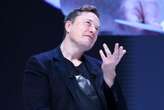Hello and welcome to Modern CEO! I’m Stephanie Mehta, CEO and chief content officer of Mansueto Ventures. Each week this newsletter explores inclusive approaches to leadership drawn from conversations with executives and entrepreneurs, and from the pages of Inc. and Fast Company. If you received this newsletter from a friend, you can sign up to get it yourself every Monday morning.
Summer snuck up on me this year. With both of my children now in college, I am less attuned to the excitement leading up to the end of the primary and secondary school year, when my household could begin to anticipate backyard cookouts, visits to the town pool, and long stretches of unscheduled time for catching up on articles (yes, I still have stacks of print magazines on my nightstand) and books.
And so, I’m a bit late assembling my second annual summer reading list. Last year’s edition was heavy on bestsellers and books with buzz. This year’s selections are a bit more practical, perhaps reflecting a desire to make better sense of the dramatic changes we’re seeing in the worlds of work, business, and global economies.
Slow Productivity: The Lost Art of Accomplishment without Burnout by Cal Newport
I’m a big fan of Newport’s contributions to The New Yorker and added this book to my list in the hope of gleaning tips on how to help myself and my colleagues manage the demands of our work. But Newport, an associate professor of computer science at Georgetown University, also raises important questions about how we measure “outputs” from knowledge workers. “It’s hard to overemphasize how unusual it is that an economic sector as large as knowledge work lacks useful standard definitions of productivity,” he writes, later adding: “Without concrete productivity metrics to measure and well-defined processes to improve, companies weren’t clear how they should manage their employees.” Could more than 100 years of management science be wrong? I’m intrigued.
The Road to Freedom: Economics and the Good Society by Joseph E. Stiglitz
When did the word “freedom” get so politicized? Stiglitz, a Nobel Prize-winning economist and professor at Columbia University, argues that free markets and other pro-business policies have reduced freedom and economic choice for most Americans. He argues for capitalism that factors in the common good and social contracts. Stiglitz’s thesis may resonate with progressives and members of Gen Z, who distrust what they think of as capitalism, but it stands in stark contrast to current business rhetoric and the rise of right-leaning politics. Which world view will prevail?
Franchise: The Golden Arches in Black America by Marcia Chatelain
When I worked for The Virginian-Pilot in Norfolk, Virginia, in the early 1990s, one of my sources for stories on business and race—and the overall economic climate—was a Black executive who owned multiple fast-food franchises. He saw himself very much as an entrepreneur and creator of economic opportunity, which certainly was true. But I was too naïve and inexperienced to press him on the complexities that Chatelain’s Pulitzer Prize-winning book explores, such as the impact of fast-food diets and minimum wage jobs on communities of color. Inc. Editor in Chief Mike Hofman recently recommended this book to his editorial team as one of several “great examples of journalism and thoughtful explorations of topics of race in America.”
What are you reading?
What books are you taking to the pool or beach this summer? Please send reading recommendations—and why you’re suggesting them—and I’ll publish the most intriguing suggestions in a future newsletter.
Read more: more reading lists
25 books to read this summer, according to The Atlantic
Nonfiction books NPR staffers have loved so far this year
The Economist points you to its most “beach-worthy” articles










No comments